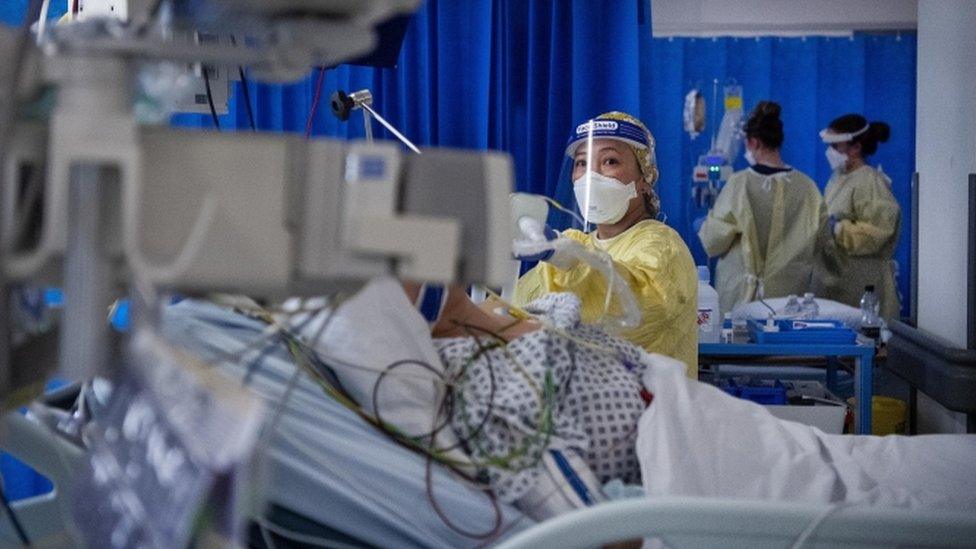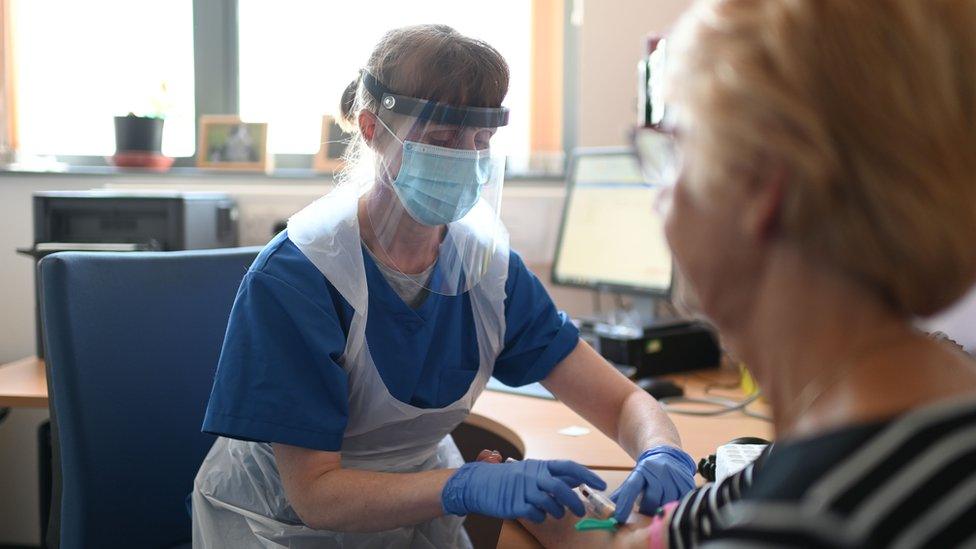Work pressures driving nurses and midwives away
- Published

Work pressures are driving thousands of nurses and midwives a year away from the profession, the regulator says.
The Nursing and Midwifery Council said retention was becoming a major concern despite an overall growth in the register.
Its annual report found 27,000 professionals had left the register in the UK in the year to the end of March.
While retirement appeared to be the most common reason for leaving, health and exhaustion were cited as the next.
The regulator said slightly fewer had left than the year before - but the proportion leaving early was still undermining the pipeline of new joiners.
It surveyed leavers, receiving responses from a third. Most had left the profession earlier than they planned.
NMC Chief Executive Andrea Sutcliffe said: "There are clear warnings workforce pressures are driving people away.
"Many are leaving earlier than planned, because of burnout and exhaustion, lack of support from colleagues, concerns about quality of care and workload and staffing levels."
'Face harassment'
There were, however, a record 52,000 new recruits, including nursing associates - a role, in England only, between healthcare assistants and nurses. Nearly half were recruited from abroad - but the number of those trained domestically rose the most.
It means there were a record 788,000 professionals on the register at the end of March - 30,000 more than a year previously. This includes those working in the private and social-care sectors, as well as the NHS.

The register is also becoming more ethnically diverse, the NMC said, with more than a quarter of professionals belonging to ethnic minorities.
And as research showed these staff were more likely to face harassment, bullying and abuse, Ms Sutcliffe said, it was important for employers to work harder to foster "inclusive" cultures.
The warning comes amid a pay dispute in England, Wales and Northern Ireland, which has led to a series of strikes by Royal College of Nursing members over the past six months.
England Health Secretary Steve Barclay said the rise in numbers was "promising" and the NHS was on track to hit the government's target of recruiting 50,000 more nurses during this Parliament.
"We will shortly publish a long-term workforce plan to go even further, including projections for the number of doctors, nurses and other professionals we will need in five, 10 and 15 years' time," he added.
But RCN general secretary Pat Cullen said: "These figures bear out our concerns over the failure to retain experienced staff.
"While internationally educated nursing staff are a vital and valued part of the NHS, the over-reliance on staff from overseas, including those countries with shortages of their own, is not sustainable."
- Published25 January 2021

- Published29 December 2020

- Published17 February 2021

- Published7 November 2020
